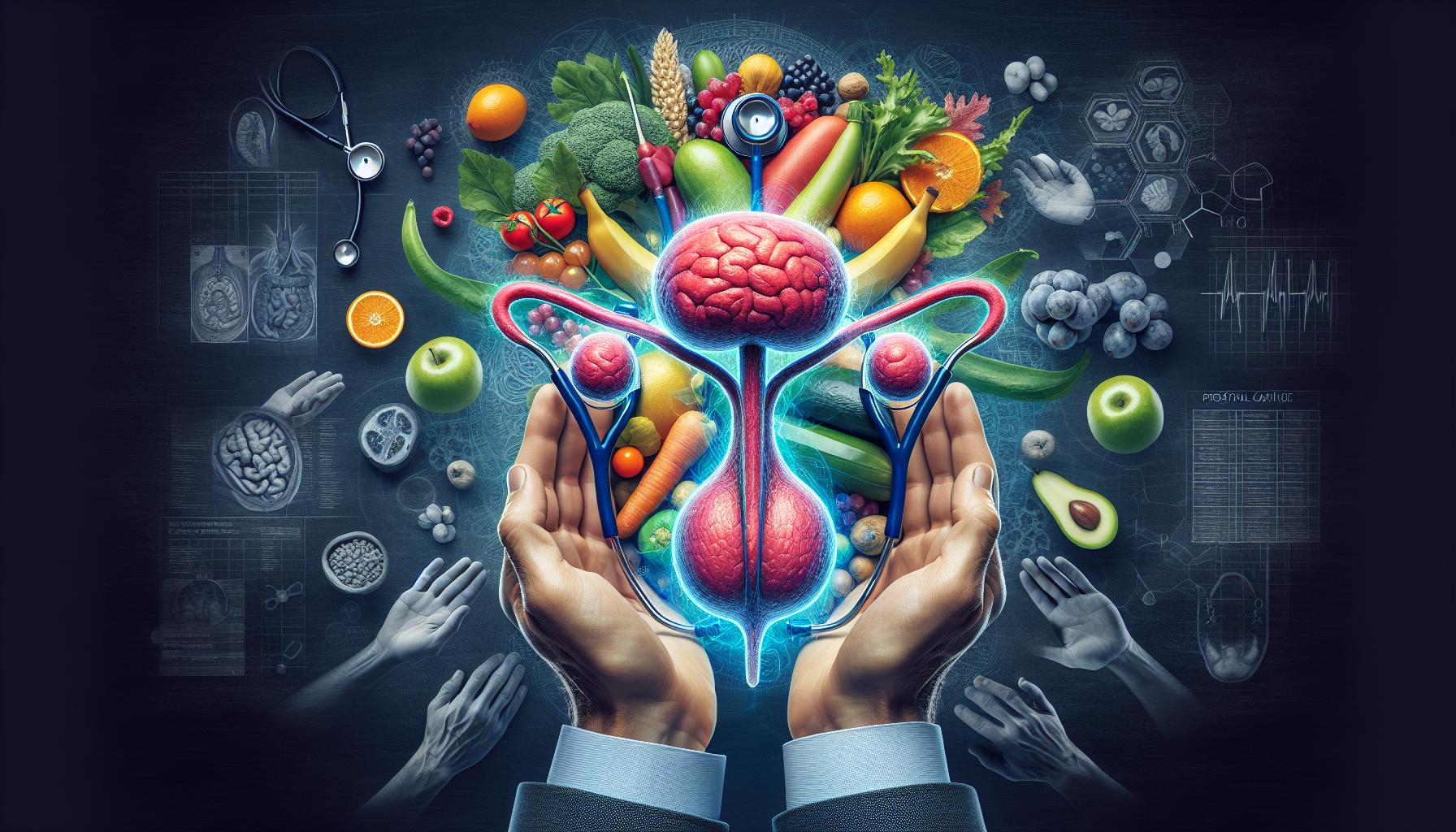Introduction
Navigating the road from diagnosis to recovery with prostate cancer is a journey filled with questions at every turn. One crucial question that surfaces is, “Which diet should follow after prostate cancer surgery?”. By sticking to a healthy post-op diet, you can significantly boost your recovery rate and regain your strength. By the end of this article, we’ll not only explore the various dietary regimen recommendations for optimal recovery but also delve into relevant topics to better equip you in your health journey.
A Rejuvenating Repast: The Importance of Post-Op Nutrition
A well-balanced diet brimming with proteins, carbohydrates, fats, vitamins, and minerals plays a pivotal role post-surgery. It helps to replenish the strength sapped by the surgery and further fortifies your body to fight infections.
Nature’s Bounty: Harnessing the Power of Proteins
Rich in proteins, lean meats like chicken, turkey, eggs, and fish are pivotal to your recovery. They repair damaged tissues, bolster immunity, and revamp your energy levels post-op.
Sustenance from Sunshine: The Role of Vitamin D
Vitamin D, the ‘sunshine vitamin’, plays a distinct role in aiding post-op recovery. You can acquire your daily dose of Vitamin D through sunlight and dietary sources such as fatty fish, cheese, and fortified dairy products.
Go Green: The Significance of Plant-Based Foods
Leafy greens, fruits, and vegetables are laden with essential vitamins and minerals, which can bolster your immune system, helping you recover at a faster pace.
Fluid Fundamentals: Importance of Hydration
Besides solid food, it’s just as critical to sip on plenty of fluids post-surgery. Dehydration is a sneaky antagonist post-op, and drinking plenty of water along with beverages like herbal teas and nutrient-loaded smoothies can help you stay hydrated and upbeat.
Shunning Sugar and Sodium
While embracing nourishing food and drink, it’s just as crucial to dodge certain dietary landmines. Excessively sugared or salted items can do more harm than good, leading to several health complications.
Fiber Fix: The Need for Whole Grains, Fruits, and Vegetables
Whole grains, fruits, and vegetables are fantastic sources of fiber, which is fundamental post-op. Fiber not only promotes digestive health but also supports overall recovery. A high-fiber diet helps alleviate common post-surgical issues like constipation.
Equilibrium in Eating
While concentrating on nutrition, it’s essential to ensure you’re eating enough – but not too much. Keeping portion sizes in check and maintaining regular meal times can help maintain a balance in your diet, contributing to a speedy recovery and healthier lifestyle post-surgery.
Conclusion
Health truly is wealth, especially in the trying times post prostate cancer surgery. Alongside medical procedures and medications, choosing the ideal diet can influence the course of your recovery. By incorporating nutrient-dense foods and maintaining a healthy eating routine, you can increase your chances of bouncing back to health faster.
Frequently Asked Questions
1) Can I drink alcohol post-surgery?
Alcohol post surgery, especially heavy drinking, can interfere with recovery time and can further strain your liver. It’s best to indulge in moderation or avoid alcohol altogether until recovered.
2) Is dairy good for me post-surgery?
Yes, but choose low-fat or non-fat dairy products. These will provide calcium and vitamin D without the extra calories and fats.
3) Are there any foods I shouldn’t eat after prostate cancer surgery?
Processed or red meats, foods high in sugar or sodium, and alcohol should be avoided after surgery.
4) Can I take dietary supplements instead of food?
Supplements are a good way to enhance nutrition; however, they should not replace a well-balanced diet. Always consult your healthcare provider before taking any new supplement.
5) How long should it take for me to resume eating regular, solid foods?
Most people can start eating solid foods a day or two after surgery. However, the timing largely depends on individual recovery rates and doctor’s discretion. Always make a gradual transition back to your usual diet while ensuring it is balanced, nutritious, and optimal for recovery.


